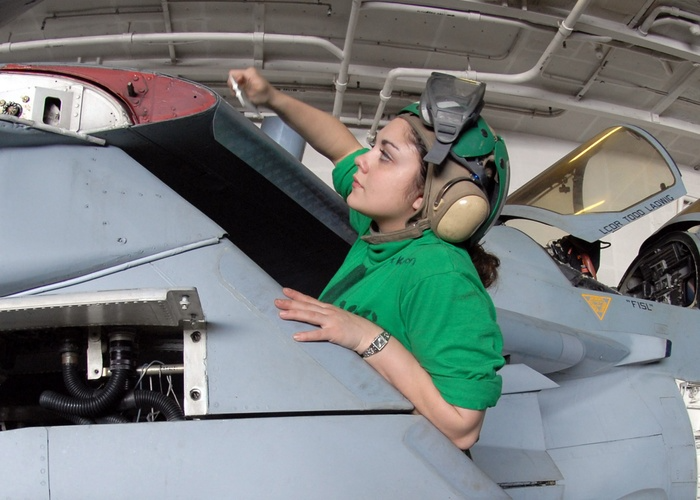Is Blockchain the Future of Aviation Logistics, Services, & Maintenance?
Over the years, a few core technologies have revolutionized the aviation industry. Mostly, we think of the ones that impacted things inside the cockpit. But those of us who know know that the real driving forces of the aviation industry lie not in the cockpit but in what goes on before anyone ever steps to the jet.
The emerging technology that we see having the biggest overall impact on aviation logistics (along with services and aircraft maintenance) is Blockchain. Blockchain is not exactly new at this point; the premise and foundation of Blockchain can be found in Satoshi's original Bitcoin whitepaper. Cryptocurrencies are certainly interesting if nothing else. But what do they have to do with the aviation markets at large?
Let’s take a look.
What Is hte Role of Blockchain in the Aviation Industry?
So, the question is, what role will Blockchain play in the aviation industry?
Before we answer that, you need to understand what Blockchain is and how it can be used.
Blockchain is a revolutionary technology poised to revolutionize how we do business and interact with the world. In essence, blockchain is a distributed ledger system that stores and manages data securely and transparently. It is based on the idea that instead of having a single, centralized authority control and maintain the ledger, multiple copies of the ledger are distributed across a network of computers. This decentralized approach makes blockchain highly resistant to fraud and tampering, as most network participants must verify any changes to the ledger.
One of the most well-known applications of blockchain technology is cryptocurrency. Cryptocurrencies such as Bitcoin and Ethereum are digital currencies that are transferred and verified using blockchain technology. However, the potential applications of blockchain extend far beyond cryptocurrency. For example, blockchain can be used to create secure and transparent voting systems, supply chain management systems, and land registry systems.
Here are some of the key benefits of blockchain technology:
- Security: Blockchain technology is highly secure, as it is based on cryptography and distributed ledger systems. This makes it resistant to fraud and tampering.
- Transparency: All transactions on a blockchain are recorded in a public ledger, which makes them transparent and auditable.
- Efficiency: Blockchain technology can streamline and automate business processes, making them more efficient and cost-effective.
- Decentralization: Blockchain technology is decentralized, meaning that any single entity does not control it. This makes it more resilient and less susceptible to censorship.
Blockchain technology is still in its early stages of development, but it has the potential to revolutionize a wide range of industries. As more businesses and organizations adopt blockchain technology, we can expect to see even more innovative and disruptive applications emerge.
The technology can be easily transferred to many industries where security and transparency are paramount, and perhaps none more so than aviation. But more to the point, it has the potential to make transactions much more efficient by removing so many of the middlemen.
Here Are Some Use Cases for Blockchain in Aviation
There are a few immediate uses where Blockchain will be an absolute boon for the industry.

Data Storage & Collection
The current aircraft maintenance record management method, particularly with military aircraft in the U.S. inventory, involves thousands upon thousands of pages of documentation, along with parallel digital records. It is an incredibly burdensome process.
When the KC-135E tankers were being retired from the Air National Guard in the 2000s, all of their maintenance logs were pulled out of storage and included on the jet on its last flight to AMARC. Each jet carried with it dozens of file boxes filled with nearly five decades of paperwork.
The problem with a completely digital interface up until now is that it is far too easy to tamper with. Blockchain fixes this.
User Identity Verification
There are a bunch of different ways that user identity verification positively benefits the aviation industry. Many cases are made for the service side, where potential passengers' identities are confirmed and cannot be changed, but what about in terms of maintenance or logistics?
Aviation maintenance is a process where ownership of tasks performed and tasks inspected is critically important. Verifying those is imperative, particularly if there is an accident or incident. The aircraft maintenance records are imperative to determining causes, should these happen, and they do happen.
And this isn’t just line maintenance or MRO maintenance. Say it was an engine problem: if necessary, engine records are tracked back to the point of origin, including the OEM.
Blockchain records all maintenance actions over the entire lifetime of the aircraft, part, or component, and all interactions with the said item are permanently recorded and cannot be changed.
Reduction in Maintenance Costs
Blockchain will help operators, whether civil or military, implement predictive maintenance. This is the ultimate long game, but it is the one that pays the highest dividends. Predictive analytics have the ability to observe a fleet of aircraft and analyze mean failure rates and mean times between failures.
More than just a reduction in maintenance costs, it will reduce maintenance errors and provide unparalleled accountability between MROs and their customers. Blockchain is verifiable documentation for any component they touch, and the entire history of the component or part repair is recorded and attached to that specific item.
How Does Blockchain Benefit the Aviation Community?
More directly, how will Blockchain benefit the aviation community?
The #1 variable that it provides is accountability. You would be horrified at how many times a legitimate write-up in paper-based documentation is removed completely and never goes into the permanent record for the item. It is completely illegal and happens much more than you’d like to know.
Accountability equals safety. When the maintenance action goes into a Blockchain ledger, it goes in there for good. When a technician signs it off, the action is permanent. But it also adds features that streamline processes and increase efficiency.
Blockchain Automates Processes
Returning to the talk about the old tankers being retired and all their paperwork going with them to the boneyard. All of those administrative actions were paper-based. None of that was automated. Some individuals spend their entire military career pouring over and analyzing aircraft maintenance records. The same goes for supply clerks tracking and tracing aircraft parts.
Blockchain is a highly automated process, and it will replace these manual-input-heavy positions in a few years. Also, it will do the work faster and more efficiently, feeding data into predictive analytics. The goal is that the end user will be able to access whatever they need to know when they need it without having to goad or coax the systems.
What Are the Obstacles to Blockchain Deployment?
Are there obstacles to Blockchain deployment? Of course, there are. There is always resistance to emerging technologies, no matter how promising they are. You will always need to prove why it is a better option than a system that is already in place and has already worked.
Also, Blockchain is directly correlated to cryptocurrencies, which are largely misunderstood or stigmatized.
It will also take time to develop and deploy the systems, and it will not be cheap. From here, it also looks fairly inevitable that Blockchain will be the future of aircraft logistics and maintenance management. But key questions remain, like who will pay to develop the Blockchain systems for aviation.
How Close Are We to Seeing Widespread Blockchain Implementation in Aviation?
We are still very much in the infancy of Blockchain being implemented, and it is important to understand that Blockchain is a piece of a much larger movement. Blockchain is really an element in a completely new ecosystem. And the thing is that it will require collaboration among companies and entities that are traditionally extremely competitive with each other.
This alone could be enough to derail a program with extremely positive qualities to fix problems that have plagued the industry for decades. Problems that include:
- Aircraft parts registration
- Parts & component tracking
- Usage rights
- Security issues.
Parting Thoughts
Is Blockchain the way ahead for maintenance and repair in the complex aviation markets? Probably, at least for the commercial markets. It’s tough to say whether or not the military would follow the same course, but it would certainly be a good thing for them to use as well. Countless examples of mismanaged maintenance forms would no longer exist if the military transitioned to a Blockchain system.
Only time will tell if this will happen. The technology is still in its emerging stage, so we will have to wait and see where the aviation applications of Blockchain go.


.svg)


.png)


